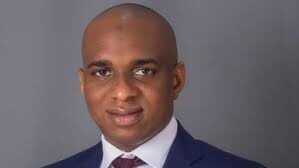The Institute of Safety Professionals of Nigeria (ISPON) has marked 11 years since it was officially recognised by an Act of Parliament, highlighting its growing role in promoting safety awareness and national development.
At a press conference in Abuja, ISPON President, Chief Stephen Udezi, described the milestone as a significant chapter in the institute’s journey, which began in 1980 but received formal chartering in 2014.
“We are here to celebrate 11 years of legal recognition. Though the institute was founded in 1980 by visionary professionals, it was the 2014 Act that empowered us to contribute to national safety standards fully,” he said.
Dr Stephen noted that ISPON was established to foster a multidisciplinary approach to safety. Membership is open to medicine, law, engineering, the military, and journalism professionals.
He explained that the 2014 Act followed years of engagement with the National Assembly and set the stage for ISPON’s expansion into public policy and safety education across sectors.
“In 2021, we initiated discussions with the Head of the Civil Service of the Federation to integrate safety into the civil service structure. Today, there is a dedicated safety desk in the federal civil service, allowing professionals to grow into roles such as Safety Director,” he said.
He also highlighted ISPON’s partnerships with institutions like the Nigerian Air Force and the National Board for Technical Education (NBTE), through which the institute now certifies safety professionals and standardises skill training nationwide.
“We are working to ensure Nigerians not only understand safety but are also trained in life-saving practices,” he said.
Dr Stephen called on the media to support ISPON’s campaign for stronger safety awareness, pointing out that many tragic incidents, such as building collapses and tanker explosions, are preventable with proper education and enforcement.
“Nigeria has solid laws, but weak implementation and low public awareness remain challenges. Safety education must start from early childhood, not just universities,” he added.
He urged Nigerians to adopt a “defensive thinking” culture and take personal responsibility for safety in daily life.
“Safety is everyone’s business. We must act, not just react. With support from the media, government, and communities, we can build a stronger safety culture across Nigeria,” he said.










